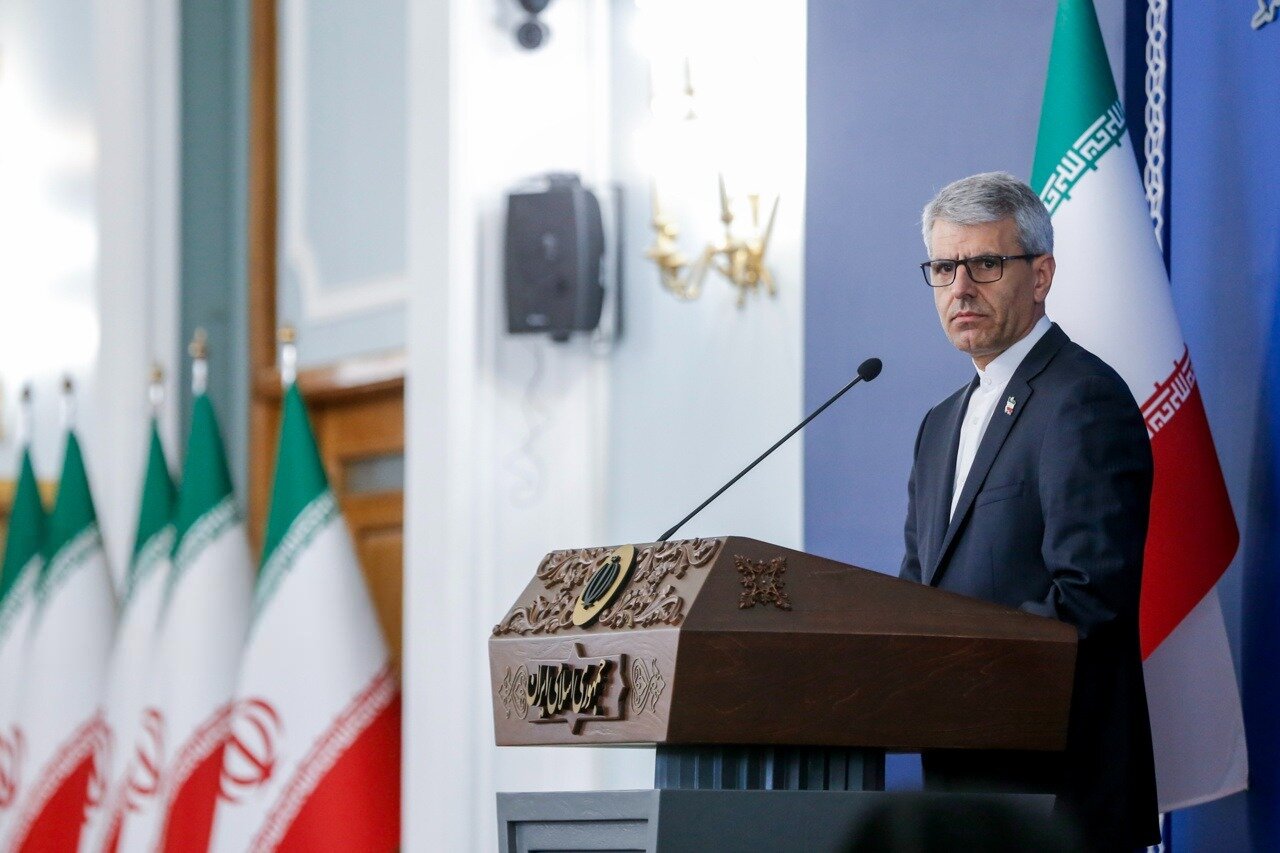Iran and China to preserve their ‘robust’ relations: Iran foreign ministry

TEHRAN – Iranian Foreign Ministry Spokesman Esmaeil Baqaei delivered a rebuke of U.S. sanctions targeting Iran-China trade during his weekly press briefing in Tehran on Monday, declaring: “Iran and China preserve their robust relations.”
Addressing Washington’s escalating campaign to disrupt bilateral oil trade, Baqaei stated: “The U.S. has undermined all international rules and norms of free trade, either by imposing tariffs against countries or by imposing sanctions against the legitimate relations of various nations. Regarding Iran-China trade, Washington’s actions contravene international law because they violate the decisions of two independent UN member states.”
He emphasized that Iran’s relationship with China is “robust,” and both countries make decisions based on their “assessment of interests.”
Baqaei’s remarks countered the Trump administration’s unilateral and hostile sanctions against Iran, including the June sanctions targeting what Washington claimed was a 50-entity network facilitating Iranian oil exports to China.
The measures, which the U.S. Treasury claimed are the largest enforcement package since 2018, aimed to choke Iran's oil exports, with U.S. officials pressuring Beijing to halt purchases in their bilateral trade talks in Stockholm.
U.S. Treasury Secretary Scott Bessent grudgingly acknowledged China’s uncompromising position and pointed to Washington's possible punitive measures for defying U.S. sanctions, noting that the Chinese “take their sovereignty very seriously” and would rather pay tariffs than comply.
China’s Foreign Ministry has rejected Washington’s coercion. Its spokesperson has said China “firmly opposes long-arm jurisdiction and unilateral sanctions,” adding that Beijing does not agree with “resolving issues with sanctions, still less unilateral sanctions that lack the basis of international law.”
Additionally, during talks with his Iranian counterpart, Chinese FM Wang Yi reiterated opposition to the “abuse of force and illegal unilateral sanctions.”
Legal pursuit of attacks against nuclear facilities
Baqaei also lambasted Washington’s justification of its strikes on Iranian civilian nuclear sites on June 22 as “preventing war” as “preposterous and unjustifiable.”
He reiterated that the attacks occurred mid-negotiations: “Two days before the sixth round of nuclear talks, the U.S. sent its proxy [the Israeli regime] to wage war on Iran and joined this blatant military aggression itself.”
He reiterated that Iran is pursuing legal and diplomatic channels to hold perpetrators accountable. Baqaei criticized the IAEA’s muted response as “unprecedented in the agency’s history,” stressing technical talks would emphasize “legal compliance and protection of Iran’s nuclear facilities.”
He also noted that technical talks with the IAEA began on Monday in Tehran to address these concerns and protect Iran’s nuclear infrastructure.
Consultations with Armenia to secure South Caucasus stability
Turning to regional developments, Baqaei underscored Iran’s “close coordination” with Armenia amid shifting regional dynamics following the Yerevan-Baku peace deal signed in Washington, DC.
“The South Caucasus holds strategic importance for Iran due to its geographical position and impact on regional security,” he affirmed, announcing an imminent visit by Armenia’s Deputy Foreign Minister Vahan Kostanyan to Tehran. “We expect continuous consultations on developments affecting Iran’s interests.”
Baqaei cautioned: “While Iran welcomes expanded regional connectivity, such developments must not violate international law, national sovereignty, or the region’s geopolitical fabric.”
He welcomed Armenian Foreign Minister Ararat Mirzoyan’s assurance that Yerevan “will avoid actions contradicting Iran’s national interests.”
Support for Lebanese sovereignty against Israeli threats
Reaffirming Iran’s stance on Lebanon, Baqaei declared support for Beirut’s “independence, unity, and territorial integrity” non-negotiable.
“Lebanon’s proximity to the Zionist regime—an entity recognizing no bounds in committing crimes—makes its defense imperative,” he asserted, legitimizing Lebanon’s “right to self-defense.”
He linked regional security to military preparedness: “Decades of experience prove only strength deters Zionist aggression.”
Baqaei noted Supreme National Security Council (SNSC) Secretary Ali Larijani’s planned Lebanon visit aims at “preserving West Asian peace,” emphasizing Iran’s role as a stabilizing force against foreign intervention.
Mobilizing Islamic consensus against Gaza genocide
Condemning the Israeli regime’s “war crimes” in Gaza, Baqaei cited its recent pattern of massacring desperate Palestinians queueing for food and denounced Tel Aviv’s plans to annex Gaza and the West Bank as “forced displacement and genocide.”
He reiterated that Iran has formally requested an emergency Organization of Islamic Cooperation (OIC) summit. “We seek global consensus for concrete action to end these crimes,” the spokesman stated, highlighting Tehran’s diplomatic push to rally Muslim nations against Israeli atrocities.
Leave a Comment